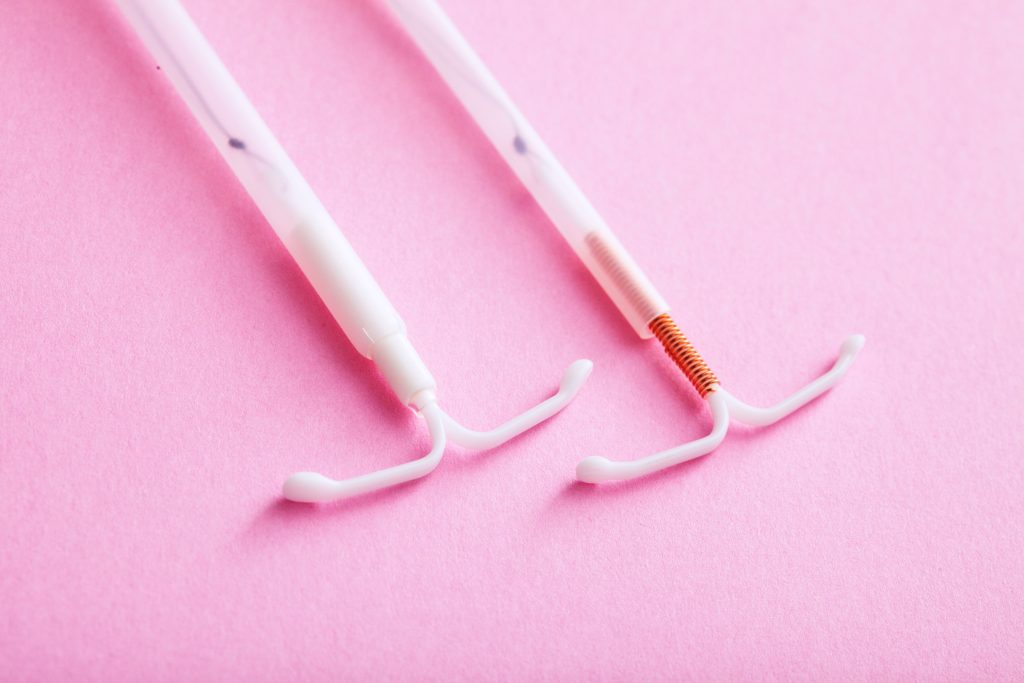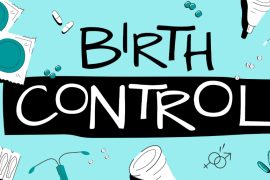When choosing a reliable, long-term contraceptive method, many women consider hormonal and copper IUDs. With so much information out there, it can be hard to pick the right one. But knowing the main differences and benefits of each can help make the decision easier.
What is an IUD? [1]
An Intrauterine Device (IUD) is a small, T-shaped device placed in the uterus to prevent pregnancy. It is one of the most effective contraceptives and offers long-term protection, lasting from several years to up to 10 years, depending on the type. There are two types of IUDs: hormonal and copper. Both are very effective, but they work differently and have their own benefits.
What are Hormonal IUDs?
Hormonal IUDs are a type of intrauterine device that release small amounts of hormones, usually a synthetic form of progesterone, into the uterus. These hormones prevent pregnancy by thickening the cervical mucus. This prevents the sperm from reaching the egg. [2] In some cases, hormonal IUDs may also stop ovulation (the release of an egg from the ovaries). [3]
How Hormonal IUDs Work? [1]
Hormonal IUDs mainly work by thickening the cervical mucus. This makes it harder for the sperm to reach and fertilize an egg. In some cases, they also thin the lining of the uterus, lowering the chances of an egg implanting.
Benefits of Hormonal IUDs [4]
- Significantly reduce menstrual bleeding and cramps
- For some women, their periods may stop altogether while using a hormonal IUD. This makes hormonal IUDs a good option for those who experience heavy or painful periods.
- They also offer long-term protection, typically lasting 3 to 5 years, depending on the specific type.
Overview of Copper IUDs [5]
Copper IUDs are a hormone-free type of contraception. They are coated with a small amount of copper, which works as a natural spermicide. Since copper IUDs don’t change your hormone levels, they are a good option for those who prefer non-hormonal birth control.
How Copper IUDs Work? [5]
The copper in a copper IUD is harmful to sperm, stopping them from fertilizing an egg. Copper ions create a sperm-averse environment in the uterus. This environment makes it difficult for sperm to survive long enough to reach and fertilize an egg. This makes copper IUDs a very effective form of contraception without affecting your hormone levels.
Benefits of Copper IUDs [5]
- Offers long-lasting protection, often up to 10 years
- Starts working immediately after insertion
- Does not interfere with natural hormonal cycles
- Suitable for individuals concerned about hormonal contraception
- Does not stop ovulation or affect periods like hormonal IUDs
Comparing Hormonal and Copper IUDs [6]
While both hormonal and copper IUDs are effective contraceptive options, they differ in several ways. Here’s a quick comparison of the two:



Insertion and Removal of IUDs [7]
The Insertion Process
Inserting an IUD is a quick procedure that usually takes just a few minutes. A healthcare provider places the device in your uterus through your cervix using a small applicator. While you may feel some discomfort or cramping, the process is generally fast and well-tolerated.
What to Expect After Insertion
After the IUD is inserted, you may experience some cramping or spotting, but this usually goes away within a few days. You may also notice some changes in your menstrual cycle, especially if you choose a hormonal IUD.
Removing an IUD
Removing an IUD is a simple procedure that a healthcare provider should perform. After removal, your fertility returns to normal, so you can conceive if that is your goal.
Considerations for Choosing Between Hormonal and Copper IUDs [4]
When choosing between a hormonal or copper IUD, it is important to consider factors like your health, lifestyle, and preferences about menstrual changes. If you want lighter periods or less cramping, a hormonal IUD might be the better option. But if you prefer a hormone-free method with long-lasting protection, a copper IUD could be a better fit.
Conclusion
Both hormonal and copper IUDs are great options for contraception. Both Intrauterine Device (IUDs) offer excellent long-term protection, but they work in different ways to suit individual needs. Always consult a healthcare provider to find the option that best fits your situation and goals.
Reference Links:
[1] https://my.clevelandclinic.org/health/treatments/24441-intrauterine-device-iud
[2] https://www.yalemedicine.org/news/intrauterine-devices-iud
[3] https://kidshealth.org/en/teens/contraception-iud.html
[4] https://www.medicalnewstoday.com/articles/326543#what-to-expect
[5] https://www.mayoclinic.org/tests-procedures/paragard/about/pac-20391270
[6] https://www.webmd.com/sex/birth-control/types-of-iuds-which-one-is-right-for-you
[7] https://www.webmd.com/sex/birth-control/iud-intrauterine-device





Comments are closed.